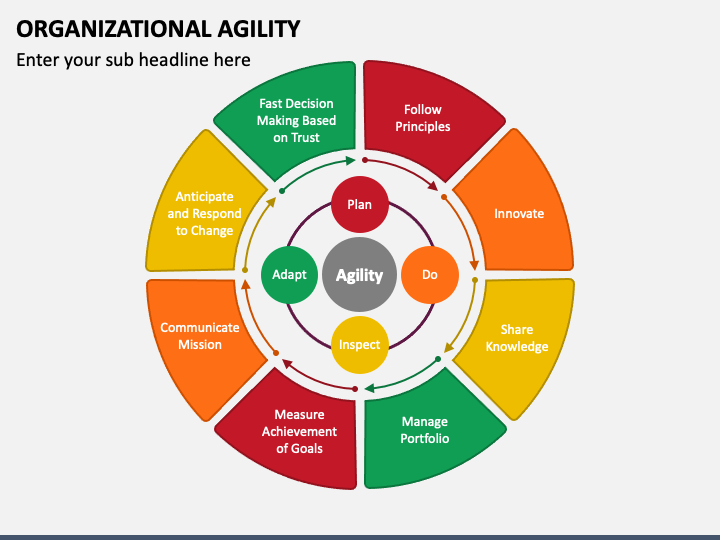In the dynamic landscape of professional development, mentorship stands as a beacon guiding individuals through the intricacies of their careers. Whether embarking on a new journey or striving for advancement, the presence of a mentor can significantly shape one’s trajectory. This comprehensive essay explores the multifaceted role of mentorship in career development, delving into its myriad benefits, the essential development and mentorship quotes, strategies for establishing and nurturing mentor-mentee relationships, and the broader impact of mentorship on organizational culture and success.
Career Development
Career development is a transformative journey marked by growth, learning, and advancement in one’s professional life. At its core lies the crucial role of mentorship, serving as a guiding force that propels individuals towards their goals. Mentorship offers invaluable support, wisdom, and perspective, helping individuals navigate the complexities of their chosen fields.
A mentor serves as more than just a teacher; they are a trusted advisor, confidant, and advocate. Through their experiences and insights, mentors provide valuable advice, challenge assumptions, and offer constructive feedback, all of which contribute to the holistic development of their mentees. They share knowledge not only about technical skills but also about navigating workplace dynamics, building networks, and seizing opportunities.
Some Quotes about Development
- The only limit to your impact is your imagination and commitment.” – Tony Robbins
- “The journey of a thousand miles begins with one step.” – Lao Tzu
- “Success is not final, failure is not fatal: It is the courage to continue that counts.” – Winston Churchill
- “The only way to do great work is to love what you do.” – Steve Jobs
- “In the middle of difficulty lies opportunity.” – Albert Einstein
- “Success is stumbling from failure to failure with no loss of enthusiasm.” – Winston S. Churchill
- “Your time is limited, don’t waste it living someone else’s life.” – Steve Jobs
- “The only person you are destined to become is the person you decide to be.” – Ralph Waldo Emerson
- “Opportunities don’t happen, you create them.” – Chris Grosser
- “Believe you can and you’re halfway there.” – Theodore Roosevelt
Benefits of Mentorship

Mentorship serves as a catalyst for personal and professional growth, offering a plethora of benefits to both mentors and mentees. Firstly, mentors provide invaluable insights garnered from their own experiences, enabling mentees to navigate challenges, avoid pitfalls, and capitalize on opportunities. Through mentorship, mentees gain access to a wealth of knowledge and expertise that accelerates their learning curve and enhances their skill set. Secondly, mentors offer guidance in setting realistic career goals and devising strategies to achieve them, providing mentees with a roadmap for success. Thirdly, mentors serve as advocates, leveraging their networks and influence to create opportunities for mentees, thereby boosting their visibility and advancing their careers. Moreover, mentorship fosters a supportive environment where mentees can seek advice, share concerns, and receive constructive feedback, ultimately enhancing their self-awareness, confidence, and resilience.
Characteristics of Effective Mentorship
Effective mentorship is characterized by several key attributes that foster a nurturing and growth-oriented relationship. Firstly, mentors should possess relevant expertise and experience in the mentee’s field or industry, ensuring that the guidance provided is practical, applicable, and tailored to the mentee’s professional context. Secondly, mentors should demonstrate empathy and active listening skills, creating a safe space for mentees to express themselves openly and honestly. By empathizing with mentees’ challenges and concerns, mentors build trust and rapport, laying the foundation for a meaningful and impactful relationship. Thirdly, effective mentors empower mentees by fostering a growth mindset, encouraging them to take risks, embrace failure as a learning opportunity, and continuously seek personal and professional development.
Strategies for Establishing and Nurturing Mentor-Mentee Relationships
Building a successful mentor-mentee relationship requires intentional effort, commitment, and communication from both parties. Firstly, mentees should take initiative in seeking out potential mentors within their professional networks or through formal mentorship programs offered by organizations. When approaching a potential mentor, mentees should articulate their career goals, demonstrate enthusiasm for learning, and express a genuine interest in benefiting from the mentor’s guidance. Secondly, mentees should be receptive to feedback and willing to incorporate constructive criticism into their professional development. This requires humility, self-awareness, and a willingness to embrace vulnerability as they navigate challenges and setbacks. Mentees should take proactive steps to nurture the relationship by scheduling regular meetings with their mentors, setting clear agendas, and following up on action items discussed during previous sessions. Consistency, accountability, and mutual respect are essential for maintaining momentum and maximizing the value of the mentorship relationship. Lastly, both mentors and mentees should prioritize open and honest communication, and goals for the relationship.
Networking Nexus for Mentors
In the realm of career advancement, connections are key. Mentors, often well-established professionals in their respective fields, provide a gateway to a vast network of contacts and opportunities. Through introductions, referrals, and networking events, they facilitate meaningful connections that can open doors to new career prospects. Whether it’s forging partnerships, securing job opportunities, or garnering industry insights, mentors serve as catalysts for expanding your professional network. By leveraging their connections, you gain access to a myriad of possibilities, enhancing your visibility and prospects in the competitive job market.
The Broader Impact of Mentorship
Mentorship is more than a one-on-one relationship—it has a ripple effect that transforms entire organizations. When done effectively, it helps cultivate a supportive and innovative workplace, while addressing deeper questions such as what does mentor mean in today’s fast-paced, ever-evolving work environment.
Creating a Culture of Continuous Learning
At its core, what does mentor mean if not a guide and teacher? Mentors serve as living repositories of knowledge, helping to transfer both explicit skills and the more elusive tacit knowledge that can’t be found in manuals or training programs. By encouraging learning at all levels, mentorship nurtures an environment where employees continuously grow, adapt, and upskill.
Organizations that embrace mentorship programs experience a natural diffusion of expertise. New employees quickly get up to speed, while experienced professionals have opportunities to share insights and reinforce their own understanding. What does mentor mean here? It means being a bridge between experience and ambition, between theory and practice.
Enhancing Organizational Agility and Innovation

Mentorship plays a key role in shaping a responsive and innovative workforce. When knowledge flows freely through mentorship, teams become more agile and better equipped to navigate shifts in the marketplace.
In this context, what does mentor mean for business strategy? It means having individuals who guide others through change, who champion innovation, and who provide steady leadership amid uncertainty.
Mentors often help mentees think outside the box, question assumptions, and embrace creative problem-solving. This ripple effect elevates the organization’s ability to innovate and adapt faster than competitors.
Driving Talent Retention and Employee Engagement
A meaningful mentorship experience can be one of the most powerful tools for employee engagement. What does mentor mean to an employee seeking purpose or career growth? It means having a trusted advisor who invests time and energy into their development.
Employees who are mentored feel valued and seen. They’re more likely to stay with their organization because they sense a clear path for growth. What does mentor mean in this context? It becomes a symbol of organizational commitment and a vote of confidence in an employee’s potential.
In fact, companies that promote mentorship often see increased morale and job satisfaction. When people feel they matter, they bring their best selves to work.
Supporting Diversity and Inclusion
Mentorship also plays a pivotal role in supporting diversity, equity, and inclusion (DEI) efforts. Diverse employees often face unique challenges in career advancement. What does mentor mean to someone navigating systemic barriers? It means having an advocate and role model who can provide both inspiration and guidance.
Mentors can open doors that might otherwise remain closed. They serve as proof that success is possible and can help pave the way for underrepresented voices to rise. What does mentor mean here? It means being a champion for equity and a catalyst for inclusion.
By promoting a culture where everyone has access to mentorship, organizations empower employees from all backgrounds to thrive.
Shaping the Leaders of Tomorrow
Mentorship also helps build the next generation of leaders. What does mentor mean to a future executive or team leader? It means learning how to lead with empathy, vision, and accountability.
Through mentorship, potential leaders learn not only the “how” of leadership but also the “why.” They absorb values, develop emotional intelligence, and gain a clearer understanding of the organization’s mission.
In this sense, what does mentor mean becomes synonymous with legacy—it’s about leaving behind more than results, but also principles, wisdom, and human connection.
Holistic Growth
Ultimately, mentorship transcends professional development, nurturing holistic growth and development. Mentors not only impart technical skills and industry knowledge but also foster personal growth, character development, and emotional intelligence. Through mentorship, you cultivate essential soft skills such as communication, leadership, and resilience, which are indispensable for success in any career. Moreover, mentors serve as role models, embodying values such as integrity, perseverance, and empathy, which inspire you to become the best version of yourself. Thus, mentorship is not merely a means to career advancement but a journey of self-discovery, empowerment, and transformation.
There’s some mentorship quotes:
- “Mentorship is the compass that guides one through the journey of career development.”
- “A mentor’s wisdom lights the path toward professional growth and success.”
- “In the dance of career progression, mentorship is the steady hand that leads.”
- “Behind every successful career, there’s often a mentor who believed in the potential and nurtured the talent.”
- “Mentorship is the bridge between ambition and achievement, built with trust, guidance, and encouragement.”
Wrapping up
In conclusion, mentorship plays a vital role in career development, offering a myriad of benefits to both mentors and mentees. Effective mentorship is characterized by experienced mentors who provide practical guidance, empathetic listening, and empowerment to their mentees. Building and nurturing mentor-mentee relationships require intentional effort and communication from both parties. We wish that those mentorship quotes will help you in the improving mentor-mentee relationship.
By fostering a culture of trust, transparency, and collaboration, mentorship not only benefits individual mentors and mentees but also has a broader impact on organizational culture and success. As organizations strive to attract, develop, and retain top talent, mentorship emerges as a critical strategy for fostering a culture of continuous learning and long-term success.
Andrej Fedek is the creator and the one-person owner of two blogs: InterCool Studio and CareersMomentum. As an experienced marketer, he is driven by turning leads into customers with White Hat SEO techniques. Besides being a boss, he is a real team player with a great sense of equality.
